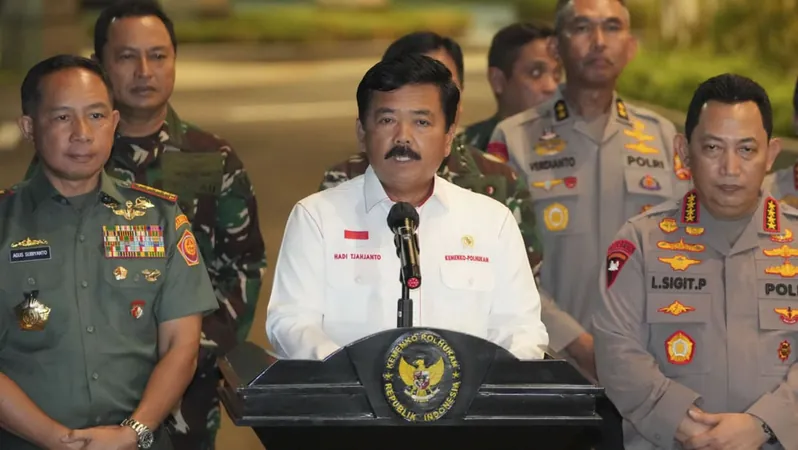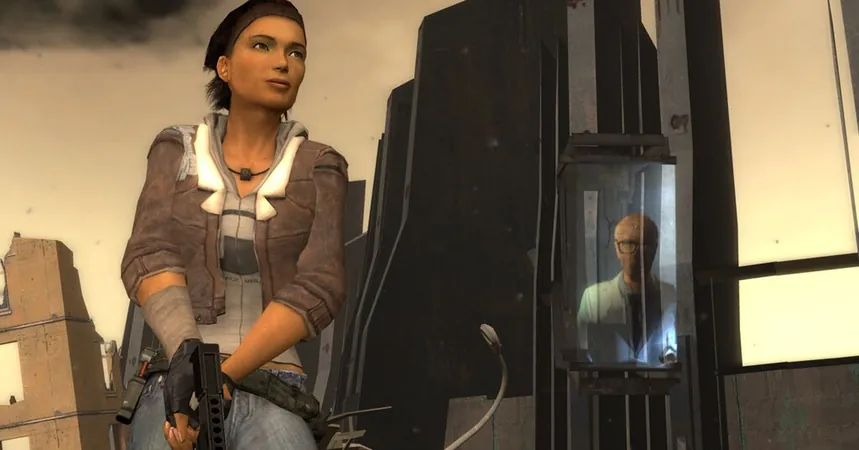
Indonesia's Bold Move: The Unveiling of the New Cyber Force to Tackle Growing Digital Threats
2024-09-24
Author: Li
Indonesia's Bold Move: The Unveiling of the New Cyber Force to Tackle Growing Digital Threats
JAKARTA: In a historic decision, Indonesian President Joko Widodo, alongside President-elect Prabowo Subianto, has given the green light for the establishment of a new Cyber Force, marking it as the fourth branch of the Indonesian Military (TNI). This strategic initiative aims to bolster the nation's defenses against escalating cyber threats from foreign adversaries.
The newly formed Cyber Force will operate in tandem with the existing branches of the Indonesian military: the Army, Navy, and Air Force. High-ranking officials have indicated that this unit will be given top priority in the incoming Cabinet led by Mr. Prabowo. The urgency of this effort has been underscored by Coordinating Minister for Political, Legal, and Security Affairs, Hadi Tjahjanto, who emphasized that in today’s landscape of modern warfare, cyber warfare plays a critical role.
"In modern warfare, cyber warfare is a central focus as it encompasses strategies for proxy wars, asymmetric conflicts, and propaganda battles," Mr. Hadi stated during a recent press briefing following a parliamentary session. The need for a specialized military unit to counter these threats has become increasingly evident, especially after Indonesia experienced a severe cyber attack in June that crippled government agencies, disrupted immigration services, and severely affected airport operations.
The new Cyber Force is tasked with conducting psychological operations and cyber patrols aimed at influencing public perception and ensuring operational success in this new battlefield. Mr. Prabowo’s strong interest in cybersecurity advancements has further propelled the initiative, setting the stage for a formidable defense against digital threats.
Notably, Indonesia is not alone in this pursuit. Several nations, including China, Germany, Norway, and Singapore, have already initiated similar cyber defense programs, showcasing the global recognition of cyber security’s importance. President Jokowi pointed to these examples to highlight the necessity of Indonesia's new direction.
However, experts warn that without sufficient funding and state-of-the-art defense equipment, the effectiveness of the Cyber Force may be severely compromised. Lodewijk Freidrich Paulus, Deputy Speaker of the House of Representatives, stressed the importance of not just having personnel but also the advanced technology necessary to execute their missions effectively. "It’s not enough to have a large cyber military force if they lack the necessary defence equipment," he cautioned.
Mr. Lodewijk further elaborated on the complexities of cyber defense, pointing out that combating cyber threats requires sophisticated tools—much more advanced than conventional devices. He stated, "If we do not consistently invest in defense technology, we risk falling behind other nations in cyber security."
The conclusion is clear: Indonesia's investment in cyber technology development is not merely an option but a necessity, comparable to forming military special forces. "Having advanced equipment, even with a smaller team, is far better than a large force lacking the proper tools," he affirmed.
As Indonesia strides into a new era of military strategy with the formation of this Cyber Force, the importance of adequate investment in technology and training can’t be overstated. The country stands at a crossroads where the effectiveness of its cyber defense will determine its resilience against future threats in a rapidly evolving digital landscape. Will Indonesia rise to meet this challenge, or face the perils of cyber vulnerability?




 Brasil (PT)
Brasil (PT)
 Canada (EN)
Canada (EN)
 Chile (ES)
Chile (ES)
 España (ES)
España (ES)
 France (FR)
France (FR)
 Hong Kong (EN)
Hong Kong (EN)
 Italia (IT)
Italia (IT)
 日本 (JA)
日本 (JA)
 Magyarország (HU)
Magyarország (HU)
 Norge (NO)
Norge (NO)
 Polska (PL)
Polska (PL)
 Schweiz (DE)
Schweiz (DE)
 Singapore (EN)
Singapore (EN)
 Sverige (SV)
Sverige (SV)
 Suomi (FI)
Suomi (FI)
 Türkiye (TR)
Türkiye (TR)